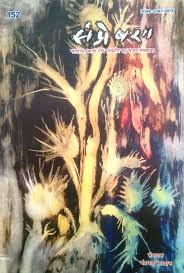Pursuit for eccentricity and misty commemoration in The Unconsoled, When We Were Orphans and Never Let Me Go of Kazuo Ishiguro
DOI:
https://doi.org/10.8476/sampreshan.v17i2.131Abstract
The British playwright of Japanese ancestries Kazuo Ishiguro ponders himself a global playwright despite his bicultural education. The many accolades he acknowledged for his owing flair can corroborate to the comprehensive worth of his occupation, but the zenith of his triumph emanated in 2017, when he was bestowed the Nobel Prize for the passionate substratum of his narratives .Ishiguro´s novel, The Unconsoled (1995) flinches the epoch of experimentation in his ingenious mien. The slog is aligned on a concert pianist, Mr. Ryder, who has lost his commemoration and has to contrivance at a concert in mysterious European city while refurbishing his personal antiquity. The sway of thrilling pragmatism is often perceived in the aforementioned toil. When We Were Orphans (2000) smidgeons a British man’s pursuit for his parentages who vanished during his juvenile and his novel Never Let Me Go (2005, filmed 2010) covenants with the life of three emulations and virtuous concerns of organ garnering and innately manufacturing. Ishiguro has sued in dialogues that he is fascinated in how people fib to themselves to sort things amusing and venerate their catastrophes as well as passionate mayhem and how one uses commemoration for one’s identifiable tenacities. The concerns of individuality, proficient integrity and national fruition in Ishiguro’s works have been extensively sought specifically in The Unconsoled, When We Were Orphans and Never Let Me Go. These three novels by Ishiguro have established his locus as a major British postmodern playwright.
Key words: eccentricity, misty commemoration, reminiscences.



